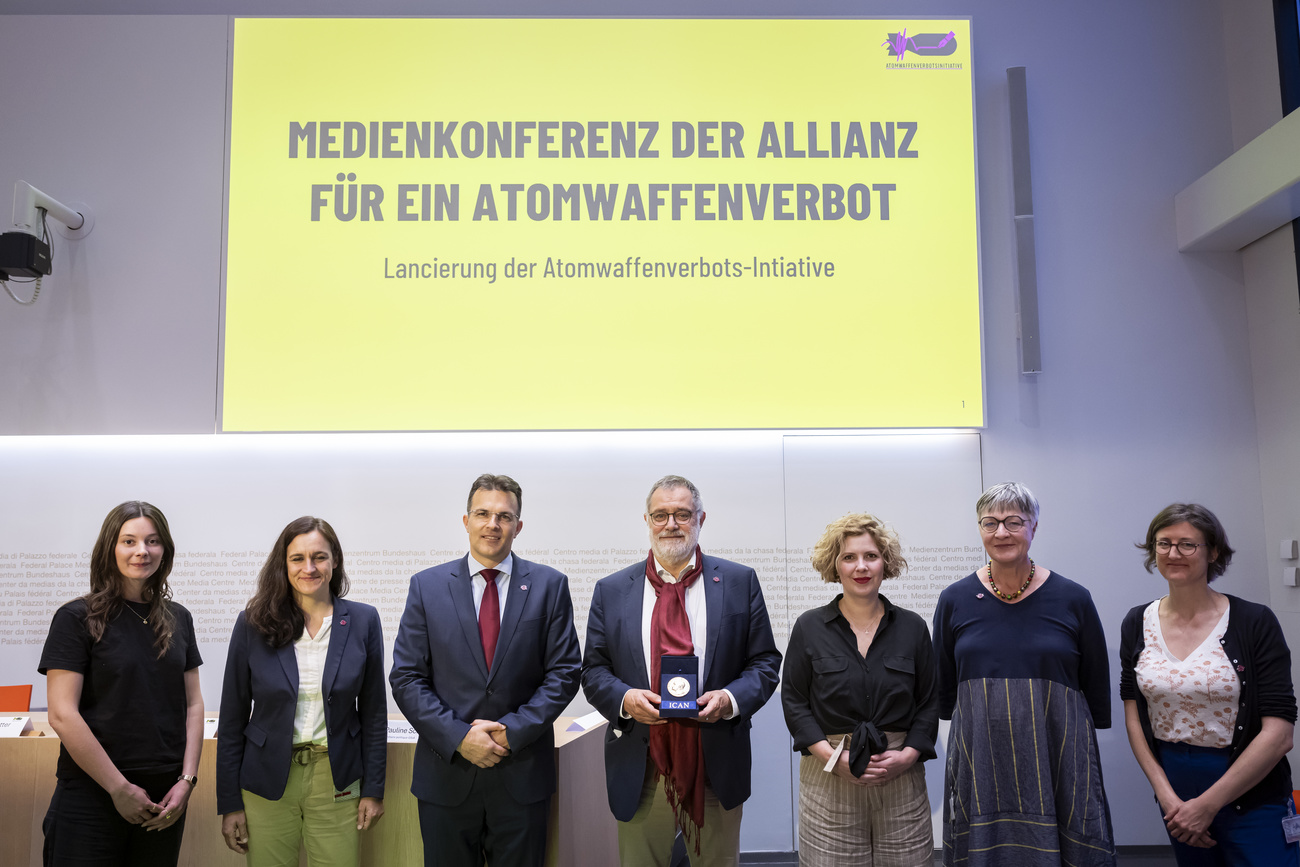
Nuclear weapons spending exceeded $100 billion for first time

Spending by the nine nuclear powers topped the $100 billion mark for the first time last year, according to the International Campaign to Abolish Nuclear Armies (ICAN).
+Get the most important news from Switzerland in your inbox
This represents an increase of more than $9 billion compared to 2023, the Geneva-based NGO said.
Every second, more than $3,160 are injected into these weapons, says ICAN, which was awarded the Nobel Peace Prize in 2017. The United States has seen the biggest increase, by $5.3 billion.
+ “It’s never been more important to eliminate nuclear weapons”
It spends more than all the other nuclear players combined, more than $56 billion. China follows with $12.5 billion, ahead of the British at just over $10 billion, who move up to third place.
The private sector has won at least $43.5 billion in contracts, while those in progress are worth at least $463 billion. New arrangements reached at least $20 billion last year.
Over five years, spending by the nine states officially equipped with this weaponry totalled almost $416 billion, an increase of 47%. ICAN repeats that the $100 billion spent last year could have been used to combat climate change and the loss of biodiversity, or for health.
At a time when the UN is increasingly facing liquidity problems, the amount would have paid for the organisation’s budget almost 30 times over.
Nearly 100 countries have signed or are party to the Nuclear Weapons Ban Treaty. Despite Parliament’s request, Switzerland is still not one of them.

More
Initiative for Switzerland to back nuclear weapon ban launched
Translated from French by DeepL/mga
We select the most relevant news for an international audience and use automatic translation tools to translate them into English. A journalist then reviews the translation for clarity and accuracy before publication.
Providing you with automatically translated news gives us the time to write more in-depth articles. The news stories we select have been written and carefully fact-checked by an external editorial team from news agencies such as Bloomberg or Keystone.
If you have any questions about how we work, write to us at english@swissinfo.ch

In compliance with the JTI standards
More: SWI swissinfo.ch certified by the Journalism Trust Initiative






























You can find an overview of ongoing debates with our journalists here . Please join us!
If you want to start a conversation about a topic raised in this article or want to report factual errors, email us at english@swissinfo.ch.